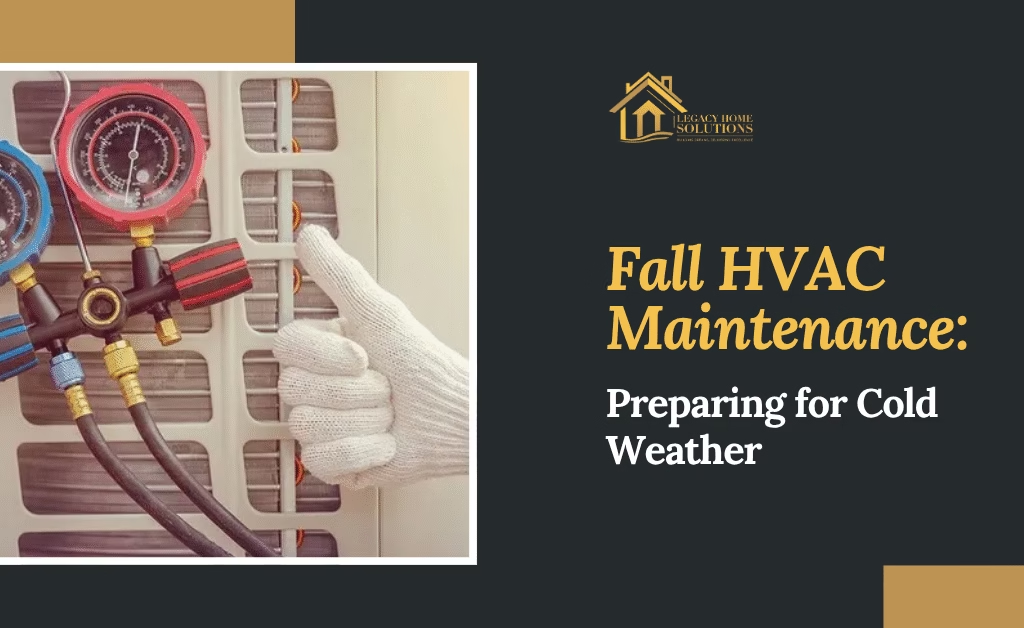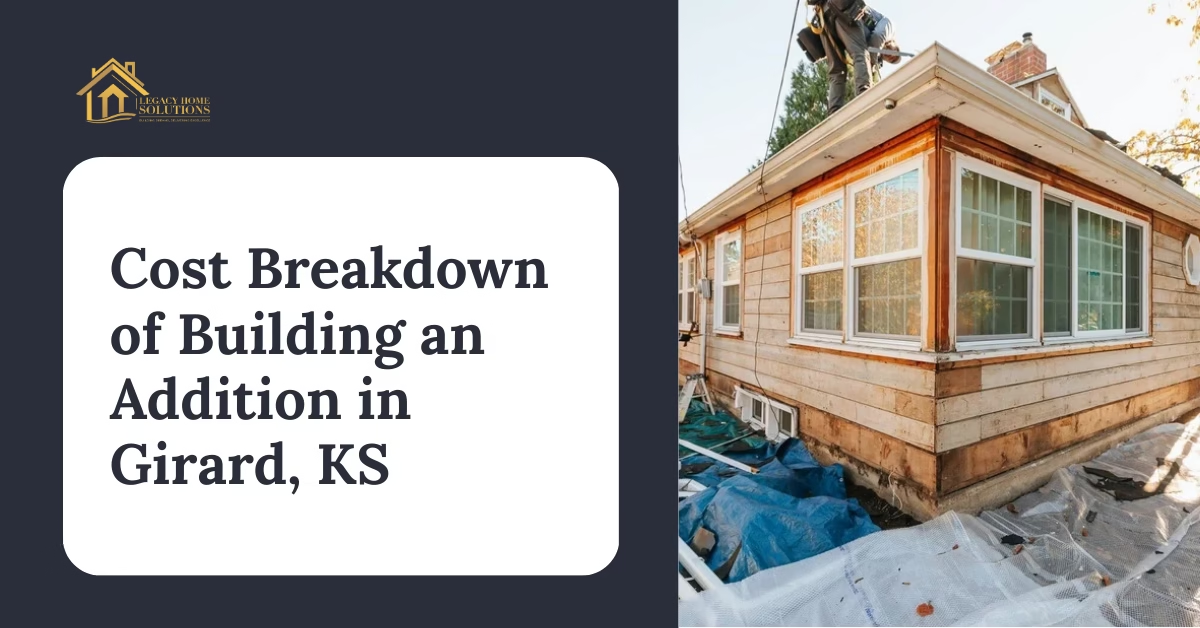A few winters ago in Independence, a cold front swept in overnight. Temperatures dropped fast, and by midnight, the wind sounded like it was pulling at the windows. In a small house on the edge of town, the Thompson family woke to silence. Their furnace had stopped without warning. No warm air. No steady hum. Only cold is moving through every room.
By morning, their pipes were close to freezing, and an emergency repair team had to replace a part that had been wearing out for months. The technician’s words stayed with them. If this had been checked in the fall, you would not be here today.
Stories like this are common across Kansas. One missed tune-up, one forgotten filter, and a quiet system becomes a costly problem. Independence homeowners face big swings in temperature, from humid summers to sharp winter cold. That puts real pressure on heating and cooling systems.
This is why seasonal HVAC maintenance matters. With a simple plan, you can catch issues early, cut energy waste, and avoid midnight surprises when the weather turns.
Why Seasonal HVAC Maintenance Matters?
Seasonal HVAC maintenance is not a glance. It is a steady plan to protect comfort and cost. In Independence, systems work in every season. They’re cool in thick summer humidity. They heat during the winter wind. They do not get long breaks. Without regular care, small problems build up in silence and show up only when the system is under stress.
Important benefits include:
- Fewer breakdowns: Seasonal care helps avoid failures during peak heat or cold.
- Lower bills: Clean filters and tuned systems improve efficiency.
- Cleaner indoor air: Regular maintenance reduces dust, pollen, and allergens.
- Longer system life: Well-maintained systems need fewer replacements.
- Steady comfort: Proper maintenance delivers reliable temperature year-round.
Many owners only think about HVAC when something fails. Seasonal maintenance flips that habit. You plan, reduce risk, and keep the home running well.
Fall HVAC Maintenance: Preparing for Cold Weather

Fall is the season to get ready. When cold arrives, service schedules fill, and small problems grow. A focused hour in the fall can prevent many winter headaches.
Fall Checklist
- Replace air filters: After summer, filters hold dust and pollen. Fresh filters improve airflow and reduce strain.
- Inspect vents and ducts: Walk room to room and make sure vents are open and not blocked by rugs or furniture.
- Listen during the first heat cycle: Squeaks, rattles, or knocks are early signs that parts are loose or worn.
- Test the thermostat: Switch to heating mode and check that it responds quickly and holds temperature.
- Schedule a professional tune-up: A local HVAC contractor can check burners, wiring, sensors, and safety controls. Small issues are easier and cheaper to fix now.
Extra Fall Tips
- Vacuum floor returns: Clear dust from returns and wipe supply registers.
- Clear storage: Keep boxes and items away from the furnace for airflow and safety.
- Stock spare filters: Keep two spares in the right size on hand.
- Watch for uneven heating: Rooms that warm slowly can signal duct leaks or airflow problems.
Winter HVAC Maintenance: Keeping Systems Steady
Winter is the hardest stretch for heating equipment. The goal is to keep a steady rhythm, watch for new signs, and protect safety.
Winter Essentials
- Replace filters monthly: Closed windows and steady use load filters quickly.
- Keep the thermostat steady: Large swings increase wear and waste energy.
- Clear outdoor vents: Snow and ice can block intake or exhaust, causing shutdowns or unsafe conditions.
- Watch your utility bill: A sudden spike can mean a failing part, a leak, or a dirty filter.
- Test carbon monoxide detectors: Replace batteries at the start of the season to confirm safety.
What to Watch For in Winter
- Lingering smells: New smells at startup that do not clear in minutes may indicate issues.
- Uneven heating: Rooms that are much cooler than others can signal duct or system problems.
- Short cycling: Frequent on and off cycles stress components.
- Unusual sounds: Loud fans or grinding noises require quick attention.
If you notice any of these, call a local HVAC contractor. A quick visit can prevent a full failure during a cold snap.
Spring HVAC Maintenance: Transition Season
Spring in Independence can be warm one day and stormy the next. This is the perfect time to switch focus from heat to cool and clean the system deeply.
Spring Checklist
- Change the filter: Replace it after winter use to prepare for cooling.
- Clean the outdoor unit: Remove leaves, twigs, grass, and dirt for clear airflow.
- Check window seals: Leaks force your air conditioner to work harder.
- Test the air conditioner: Run it for twenty minutes on a mild day to check airflow and cooling.
- Schedule a spring tune-up: A local HVAC contractor will clean coils, check refrigerant, inspect the blower, and confirm electrical connections.
Extra Spring Tips
- Trim plants: Keep at least two feet of open space around the outdoor unit.
- Rinse the coil: Use a gentle hose stream to clean the outdoor coil.
- Clear the condensate line: A clear drain prevents indoor water leaks.
- Review thermostat settings: Replace batteries if needed and prepare for summer schedules.
Summer HVAC Maintenance: Beating the Heat
Summer often brings humidity and heat together. Your air conditioner works hard for many hours each day. Simple habits keep it efficient and help prevent mid-season repairs.
Summer Checklist
- Close blinds during peak heat: This reduces heat gain and keeps rooms cooler.
- Use ceiling fans: Circulating air makes rooms feel cooler, so you can set the thermostat a bit higher.
- Rinse the condenser: Remove dust and cottonwood fluff to keep air flowing.
- Review thermostat schedules: A programmable or smart control saves energy when you sleep or are away.
- Listen for changes: Weak airflow or warm air are early warning signs of trouble.
A Note on Timing
Many HVAC companies are busiest in late June and July. If you notice weak cooling in May, schedule service right away. Early attention can save time and reduce the chance of emergency visits.
The Homeowner Year-Round Strategy
Seasonal HVAC maintenance works best when it becomes a simple habit. Think of it as a circle that repeats throughout the year.
- Replace filters: Every one to three months based on use.
- Inspect vents and units: At the start of each season.
- Schedule tune-ups: Two professional visits each year in spring and fall.
- Clear storage: Keep areas around equipment open.
- Listen for changes: Sounds often warn you first.
- Log service dates: Keep track of filter changes and repairs.
This plan protects comfort, energy costs, and equipment life without taking much time.
The Homeowner Year-Round Strategy
Seasonal HVAC care becomes simple when you can see the entire year at a glance. Use this quick reference table to stay on track without repeating tasks in every section.
| Season | Key Maintenance Tasks | Pro Tips for Homeowners | Best Time to Schedule |
| Fall | Replace filters, inspect vents, test thermostat, schedule heating tune-up | Clear storage around the furnace and vacuum returns for better airflow | Early to mid-fall |
| Winter | Change filters monthly, keep vents clear, monitor bills for sudden changes | Watch for uneven heating between rooms as an early warning | Start of winter |
| Spring | Clean outdoor unit, check insulation and seals, schedule cooling tune-up | Run your AC on a warm day early to catch problems before summer | Early spring |
| Summer | Use fans to support cooling, rinse the condenser, and review thermostat settings | Fix weak cooling early before contractor schedules fill up | Late spring to early summer |
Common Mistakes to Avoid
Even careful owners make mistakes that reduce system life or create surprise costs. Avoid these common pitfalls.
- Waiting for problems: Do not delay service until a failure happens.
- Forgetting filters: Months without changes cause airflow issues.
- Blocking vents: Rugs or furniture over vents stress the system.
- Ignoring signs: Smells, noises, or short cycling should never be ignored.
- DIY on complex parts: Leave advanced repairs to professionals.
How a Local HVAC Contractor Helps?
Local experience matters. A contractor who works in Independence understands how spring storms affect outdoor units, how summer humidity loads coils, and how sudden winter drops strain ignition systems. Local teams also know the common layouts of area homes, the typical duct designs, and the specific parts that fail most often in this climate.
A local HVAC contractor can provide:
- Faster response: When you need urgent help.
- Maintenance plans: Modified to your home and schedule.
- Expert advice: On filter types, thermostat settings, and small upgrades.
- Local rebate knowledge: Guidance on programs and savings.
- Trusted service: Built through long-term community relationships.
Indoor Air Quality and Comfort
Simple Air Quality Steps
- Use quality filters: Choose the right type for your system.
- Replace filters on time: Do not wait until airflow drops.
- Control humidity: Keep it in a healthy range in summer and winter.
- Seal ducts: If rooms are uneven, duct sealing can help.
Budgeting for Seasonal Maintenance
- Set a budget: Save a little each month for service and filters.
- Join a maintenance plan: Many local HVAC companies offer discounted seasonal checkups.
- Book early: Scheduling before peak season often saves money.
- Track savings: Note utility bill improvements after cleanings and tune-ups.
Frequently Asked Questions
1. How often should I replace my HVAC filters if I have pets?
Homes with pets usually need filter changes more often. Replacing them every one to two months keeps fur and dander from clogging the system.
2. Can skipping one seasonal maintenance visit really damage my system?
Yes. Even one missed check can allow dirt buildup or worn parts to go unnoticed. These small problems often surface as expensive breakdowns during peak use.
3. What is the difference between a tune-up and a repair?
A tune-up is preventive. Technicians inspect, clean, and adjust components to keep everything working well. A repair fixes something that has already failed.
4. Does HVAC maintenance affect my indoor humidity?
Yes. Clean coils and proper airflow help maintain balanced humidity. Poor maintenance can lead to excess moisture in summer or overly dry air in winter.
5. Should I turn off my HVAC system during seasonal transitions?
No. It’s better to adjust settings and run short test cycles during transitions. This helps catch issues early before extreme weather hits.
Conclusion
The story of the Thompson family is a clear lesson. One missed check-in in the fall led to a long, cold night and a bill that did not need to happen. Seasonal HVAC maintenance is a simple habit that protects your home. It keeps equipment clean. It keeps airflow strong. It keeps energy use in check. Most of all, it keeps your family comfortable when the Kansas weather changes fast.
Schedule your seasonal HVAC maintenance with Legacy Home Solutions. Keep your home ready for every season in Independence, Kansas.




